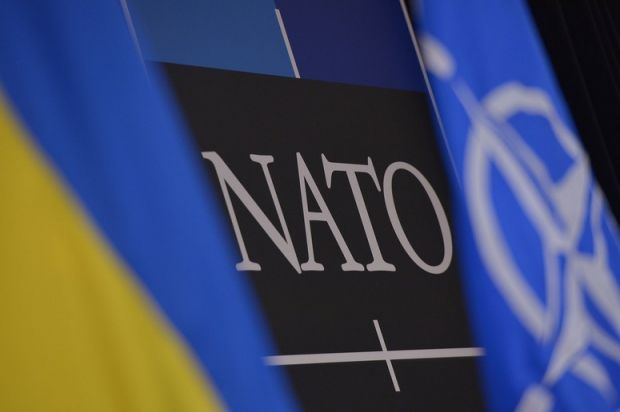
"Located astride a giant neighbor, Ukraine is a classic victim of Robert Kaplan's 'revenge of geography.' Trying to solve this problem for Kyiv by inviting it to join NATO is not in American national interests. But while the United States should rule out NATO membership for Kyiv, it need not abandon Ukraine to its fate," his article titled "Commentary: Why Ukraine's NATO membership is not in America's interests" reads.
According to him, recent war games revealed NATO would lose a war in the Baltics to Russia within 36 to 60 hours, and it's hard to envision anything other than a similar outcome in Ukraine.
"As Putin's invasion of Crimea and subsequent escalation in eastern Ukraine showed, Kyiv's geopolitical orientation is a supremely important national interest for Russia. By contrast, U.S. President Barack Obama's unwillingness to supply Ukraine with lethal arms, much less deploy combat troops to Ukraine, indicates Washington's interests are peripheral at best," the commentary reads.
"To understand why this is the case, those who want Ukraine to join NATO should go back and read Russian President Vladimir Putin's March 18, 2014, speech announcing the annexation of Crimea. Arguing that Russia was forced to annex Crimea to forestall the possibility of Ukraine joining NATO, Putin asserted that the West 'had lied to us many times. This happened with NATO's expansion to the East.… NATO remains a military alliance. I do not want to be welcomed in Sevastopol by NATO sailors.' Putin's words are not mere rhetoric. The West long underestimated the deep humiliation felt by Moscow as a result of NATO expansion toward Russia's borders in the decades after the fall of the former Soviet Union, and even the United States Navy's top commander in Europe admits Russia views NATO as an 'existential threat' today. To make a historical analogy, Russia views NATO membership for Ukraine similarly to how U.S. President John F. Kennedy viewed the deployment of Soviet missiles to Cuba in 1962. Given that NATO was – and remains – a military alliance directed against Russia, dismissing Moscow's feelings on this subject as merely 'paranoia' is too simplistic," Cohen writes.
According to him, proponents of Ukraine's NATO membership argue Russia must not receive a veto over Ukraine's geopolitical orientation. "Morally this is correct – especially considering the fact that Putin's annexation of Crimea was a clear violation of international law. Moreover, Ukraine's decision to officially identify Russia as an enemy is the right one, and it's easy to see why Kyiv would want American assistance in its ongoing struggle with Moscow," he said.
"The United States, though, also receives a vote on NATO expansion, and no matter how much the United States may admire post-Maidan Ukraine's willingness to change its trajectory, before entering into any military alliance Washington policymakers should always ask themselves the following question: Will this commitment increase or decrease the United States' national security? Absent Washington's willingness to play a game of nuclear chicken with Moscow, Ukraine's accession to NATO weakens American national security rather than enhancing it.
To be clear, none of this means the United States should provide Russia a complete veto over Ukraine's future, and Ukraine must remain free to develop any economic relationship with the West it wishes. Kyiv already signed an Association Agreement with the European Union, signifying a long-term commitment to Ukraine's economic integration with Europe, and Washington should push the Europeans to place full EU membership for Kyiv on a fast track," Cohen said.
Read alsoCommissioner Hahn: Ukraine, Georgia, Kosovo may enjoy visa-free travels this yearFurthermore, he says, the West should continue its ongoing non-military support for Ukraine. Politically, Western sanctions on Moscow should remain in place until Russia honors the Minsk II agreement by withdrawing its troops from the Donbas region and ending military support for the separatists. While Crimea almost certainly remains lost to Ukraine, the West must not recognize the peninsula is part of Russia absent a mutually satisfactory solution on Crimea directly between Moscow and Kyiv. The United States employed the same policy during the Cold War towards the Soviet Union's annexation of the Baltic states, meaning precedent for this approach exists.
Read alsoNew SACEUR to look into what weapons Ukraine needs for defenseThe West should also continue to support Ukraine financially, especially its brave civil activists determined to break the grip of Kyiv's predatory officials. In addition, while President Barack Obama rightly resists sending billions of dollars of lethal arms to Ukraine, Washington should continue shipping non-lethal aid. Finally, the United States and its European allies should significantly increase humanitarian aid to Ukraine as Kyiv struggles to feed and care for the millions of internal refugees victimized by the war in the Donbas.

